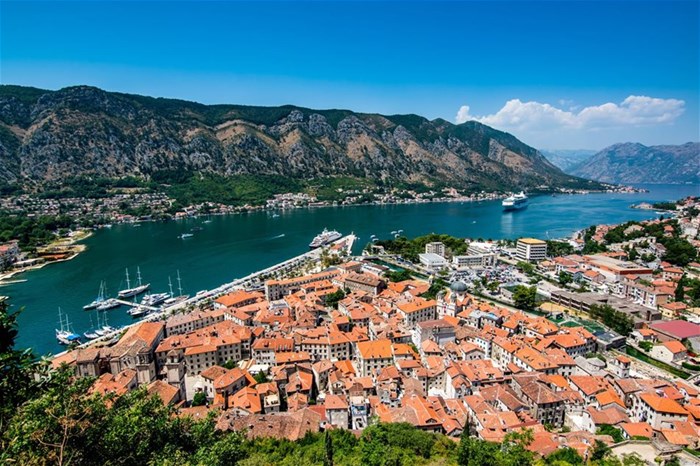South African travellers start to get caught up in the excitement of planning a trip overseas, possibly taking advantage of the SA winter school holidays to fly the family away to a summer climate. Europe is firmly within travel-starved locals' sights, with searches for flights over the winter period seeing a notable 30%* upswing compared to pre-pandemic levels according to the latest analysis from the global travel search site Cheapflights.
This excitement about the return to travel can be a little overshadowed by many European airports being currently in chaos, following a fast rebound in the travel and tourism sector, leaving airports and their service providers seemingly unable to cope with the volumes of visitors entering their doors. The cutting of operational staff, baggage handlers, security personnel, and cabin crew has left airports trying to serve passengers with both hands tied behind their backs.
Cheapflights.co.za has 11 top tips that will help SA travellers navigate some of these challenges, to make their travels - from start to finish - as enjoyable and stress-free as possible.
Consider alternative destinations to escape from crowds
SA travellers are looking at familiar travel stomping grounds, including Greece, Portugal, Spain, Italy and France. All of them are summer travel hotspots popular with other European holidaymakers as well, so it is likely that you will find them overcrowded with tourists. Yet the greater Europe has so much to offer in terms of cultural heritage and traditions, architecture, gastronomy, hidden gems, and myriad fascinating experiences just waiting for tourists. Montenegro, Bulgaria, Slovakia or Austria could be nice alternatives which also seem to be less affected by the travel disruption.
Try to avoid the busiest travel times
School holidays, especially those in South Africa’s winter season, tend to be the busiest times for travelling to Europe, with its warm summer climate and many European families heading on holiday with their kids at this period too. So, as airports and airlines are adapting to the greater demand for flights, Cheapflights suggests trying to travel out of peak times. To begin with, it would be useful to check the schedule of school breaks and various public holidays in the countries on which you have set your sights. If this time period is your only option, consider at least planning no flights for the days when these holidays start and end. It means fewer people in the airports on your arrival and a more pleasant and smooth experience.
Flights operated in the early mornings seem to be the least busy which is also helpful for avoiding crowds at the airports.
Choose different means of transport
When planning your journey within Europe, opt for direct flights if they are available to avoid additional stress in case of delays and cancellations. You can quickly filter for direct flight options on Cheapflights to grasp availability and prices. If flights are beyond your budget, or you can’t secure a flight at a time that matches your required travel period, consider other travel options. These could open up whole new travel experiences.
If your itinerary includes a few destinations within Europe, see what coach, train or ferry trips are available to and from your destination, and where they stop on the way. This is a great way to meet new people and experience a road trip without having to put as much planning in as you would if you were self-driving.
Stay aware of changes
If you’re concerned about flights being delayed or cancelled - a situation that has certainly increased since Covid - make sure that you’re always up to date with what’s happening with your flight. Some airlines may send you an SMS or email to let you know about a delay or cancellation. But, just to be doubly sure, download the airline’s app or keep up to date with flight information on the airline’s website.
Check-in online and go to the airport well in advance
From these updates you can also learn how many hours ahead of your flight your carrier advises you to arrive at the airport to avoid any extra stress. Normally, it’s 2 hours for domestic flights and 3 to 4 hours for international flights.
The best solution to avoid wasting time in long queues is to check-in online. Many European airports allow passengers to proceed with printed or saved-on-mobile boarding passes directly to the security control or to the gates.
Keep yourself organised
Passports and certain paperwork will be required of you when you reach your destination. Having all of these items ready and easily accessible can help you to avoid the delay caused by having to hunt for your documentation - and having the stress of annoyed fellow travellers grumbling behind you.
Travel with hand luggage only - but be prepared for security checks
Travelling with hand luggage has numerous benefits, including not having to wait at the baggage reclaim belts for big suitcases, and not having to pay for extra weight on your luggage. It’s also far easier to move about when you’re not towing a heavy suitcase plus your hand luggage along with you while travelling.
Prepare a transparent bag with the toiletries, each under 100ml, take off your belt, watch or jewellery, and take out change from your pockets. And if you are bringing any electronic devices with you, make sure you have easy access to them in case you are asked to remove them from your bag. All this can help with a quicker move through the security checks.
Consider paying that little extra for fast-track and priority lines
Paying an affordable fee to move through the queues quicker is a small price to pay when considering the amount of stress you could feel when waiting for hours in queues that seem endless. At Luton and Manchester Airports for example, £5 will allow you to jump the queues at security, while Stansted Airport charges £7 when booking online**.
Be entertainment smart
Being stuck at the airport for hours - whether you’re arriving for the start of your European holiday or leaving at the end of it - can be very frustrating, especially if you have kids. So make sure you have ample entertainment options to keep both yourself and your kids free from boredom.
Download movies, books or video games to your tablet or phone. Pack a puzzle or colouring book and some colouring pens. Have a card game or two like Uno handy, to keep the whole family entertained. Or create a music or audiobook playlist to listen to while you shut your eyes and catch up on your jetlag. Also have some snacks on hand in case you or your kids get peckish.
Pack a care kit
Sitting for hours at the airport can leave you feeling a bit dishevelled and uncomfortable. Pack a small care kit with essentials such as a toothbrush and toothpaste, deodorant, facecloth, make-up for touch-ups, headache tablets and phone/iPad charging cables and adaptor. Make sure you have the correct type C adaptors for the European country you are visiting (especially important if you have kids who are watching cartoons and movies on a smartphone or iPad!)
Have good insurance
Should a flight be cancelled for some reason, having insurance could save you from losing part or all of the money spent on your flight tickets. Another option is to purchase tickets that offer flexi-cancellation policies - this will give you peace of mind that, should something happen, you won’t be out of pocket if your flight is cancelled.





























